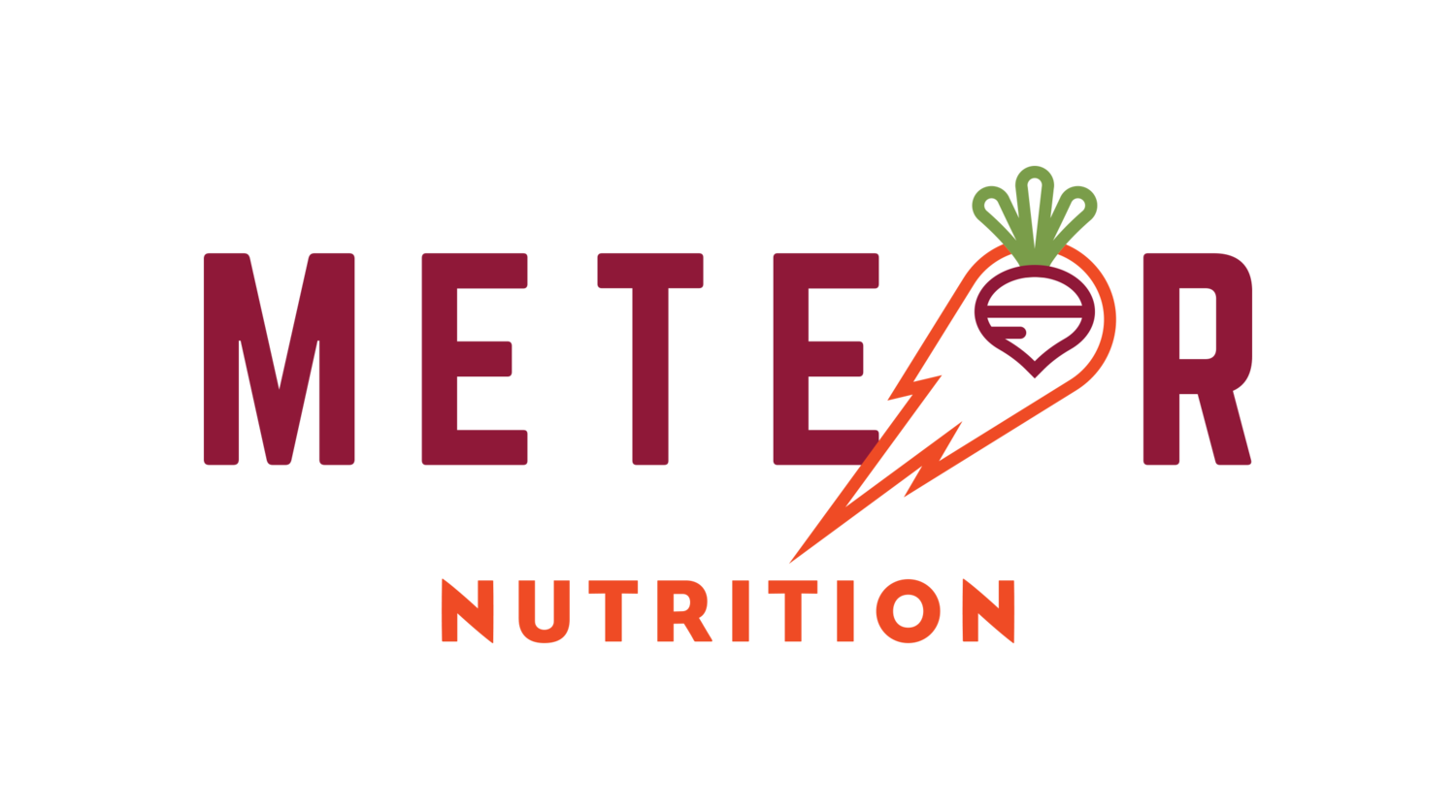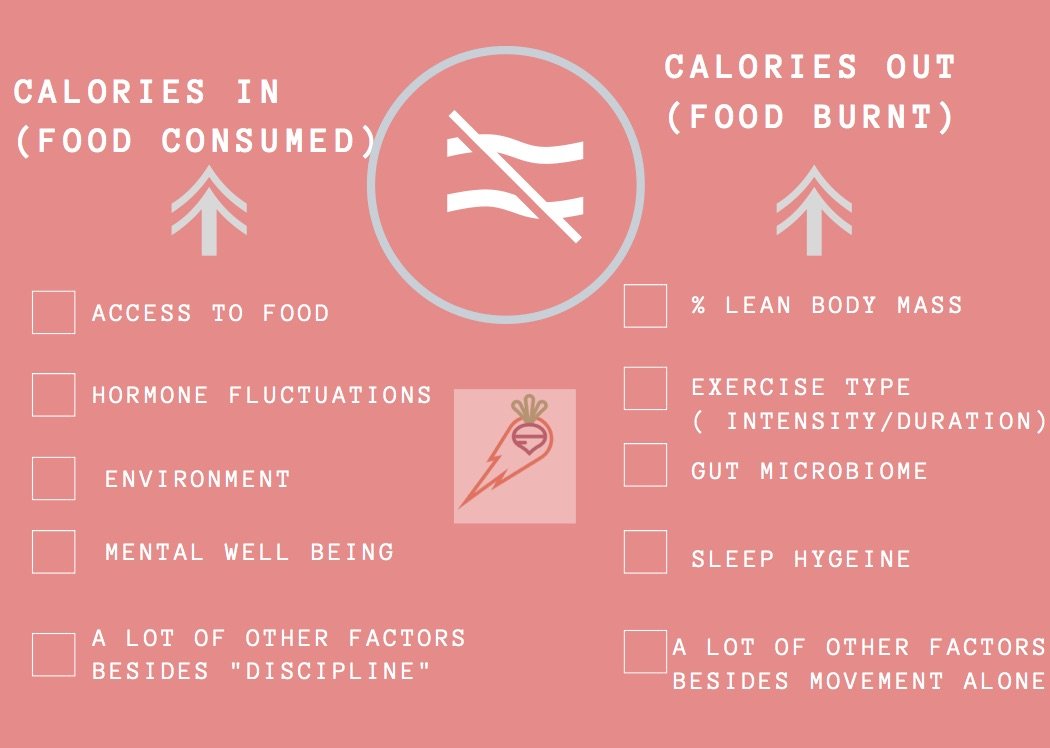The Culture of the Oversimplified Calorie Counting Diet Approach
“Just move your body more, and eat less, right?” It’s THAT simple. Sounds familiar, right? That is because society has been so conditioned to believe if we just burn X amount of calories, while only eating X, then we can expect X amount of weight loss. Many of our media streams are over saturated with #fitfluential influencers sending messages that if you just move and eat like they do, you can look like them (insert picture of 22 year old with thin privilege). This is nothing new, and this is certainly not the first blog post on this. However, within our work we have witnessed an overwhelming amount of athletes that have chosen activities based on attempting to burn the most amount of calories, then logging a record amount of consecutive days on MyFitnessPal. All of the days logged will show how his or her caloric deficit should be yielding tremendous weight loss. However, all that has happened is unrealistic expectations and precious hours wasted on trying to find the right brand of granola to upload into daily food consumption.
Now, we are not saying that regular movement that you enjoy while eating nutritious foods is not beneficial to your health, nor that the amount of calories you eat has no impact on your weight. However, all of the online calculators, macro counting, and other food and fitness influencers do oversimplify this energy equation greatly.
For example, many preach this concept:
Average person burns 1500 calories per day at rest (not performing activities of daily living or exercise)
With their daily tasks outside of exercise, they burn an additional 500 calories (chores, commuting, using your brain)
Then, they go to that awesome HIIT workout, where they burn another 420 caloires, leaving their daily expenditure at 2,420 calories.
They logged on their MyFitnessPal that they only ate 1520 calories for the day, leaving a 900 calorie deficit. They repeat this exact same sequence for enough days to burn 3500 calories
(equivalent to a pound).
Seems like pretty simple math. Should be bikini #goals in no time.
EXCEPT:
Same person also may ask themselves, why have they have not lost any weight, nor feel any different in terms of body size.
The Issue:
As mentioned above, that equation is oversimplified and does not account for the nuances and complexities of the energy balance. While the first law of thermodynamics that says energy is neither created or destroyed is true in explaining energy we ingest ( food) does dictate energy expenditure ( body’s basic function, activities of daily living, physical activity). However, also a part of this equation are other factors that may impact what we eat, and how we burn energy.
Here are some of the factors:
Factors that can influence energy intake(what we eat): food availability, personal preferences, hunger/satiety hormone activity, sociocultural and socioeconomic status, emotional stress, cooking skills, living environment, blood sugar levels, sleep hygiene
Factors that influence energy expenditure ( what we burn): resting metabolic rate
( body size, organs, lean body mass, age, gender), meal sizes, macronutrient composition (protein/carb/fat), hormone levels, non exercises activities ( NEAT) , timing of intake, hydration, fiber intake , physical activity levels, gut microbiome.
Looking at input vs out put in this was makes it evident that this equation can be considered cause and effect. For example, if you lose sleep, this can impact hormone levels making it more challenging to lose weight or potentially leading to sugar cravings which would promote excessive food intake. Additionally, over consumption of sugary foods will impact hormone levels and gut bacteria which has health implications to weight loss and further food cravings. These are just a few examples that exemplify how weight maintenance and energy balance is a lot of moving parts.
While one may find peace in controlling the amount of food they eat and how much they move their body, it will not explain all of the metabolic processes that affect the number on the scale and our overall health. When Meteor clients have weight and/or body composition goals, we commit to finding the most safe and sensible solutions to trend in an appropriate direction that does not compromise energy levels or mental health. We start with tackling the influencing factors, and rarely talk about calories themselves. So before stepping on a scale, turning on your FitBit, or logging on MyFitnessPal, I encourage you to ask
“What’s my energy like today?”
“Am I craving any foods? Why?
“How did I feel when I ate? Stressed? Satisfied? Full? Content?”
If counting calories has worked for you, wonderful! However, if you have struggled to see any changes in your body, I welcome you to start considering the other influencing factors to unlock the doors for optimal health and athletic performance. Besides, you have better things to do than counting almonds.

